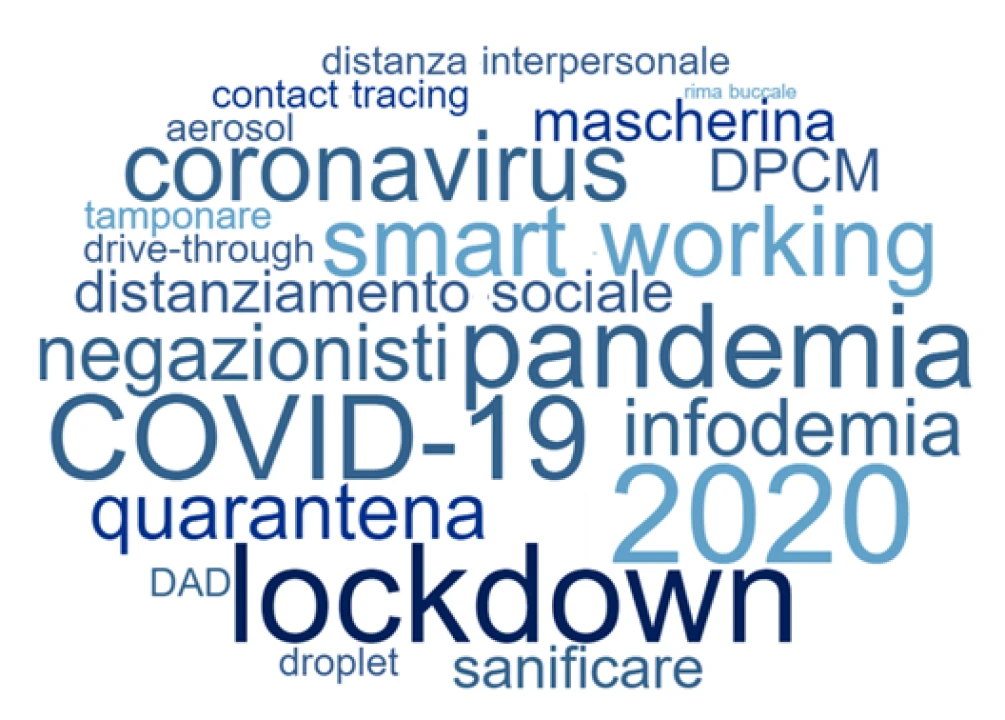March has finally arrived and spring is slowly making its way back into out lives. We’ve all spent over a year in this crazy timeline and it is now clear that our routine has changed, and perhaps our perception has also changed, but above all, our language has definitely changed. Let’s take a look at some Italian words that have made their way into our daily vocabulary and some that have taken on a new spin.
First of all, a clarification: in Italian, “virus” is pronounced “vee-rus.” I know, it’s spelled the same, but as you well know the Italian “i” is pronounced “ee,” therefore, “vee-rus:”
Our first word cannot be other than lockdown. If you are acquainted with modern Italian you also probably know that Italians absolutely love using (and misusing) English words. This is one of them. Everywhere you’ll hear the word lockdown: on the news, in the newspaper, in a random conversation. But what are some Italian terms to say “lockdown”? Well, we have confinemento and misure di confinamento, “confinement” and “confinement measures,” or even isolamento, “isolation.” But “lockdown” is definitely the most used. Another similar one is distanziamento sociale, “social distancing,” concept we borrowed from English too. Well, then, of course we have quarantena, “quarantine,” and contagio, “infection” or better “the number of cases”. The latter is actually quite hard to translate because it refers to the result of someone passing the disease to someone else, but it is mostly used now by the news and government to indicate the number of people who have been infected by the virus.
We all became experts with technical words: tampone, “swab;” test sierologico, “serological test,” anticorpi, “antibodies,” NRA, proteina Spike, “Spike protein,” mascherina chirurgica, “surgical/disposable mask,” mascarina FFP2, “KN95 mask,” gel igienizzante, “hand sanitizer” and so many new words we learned.
Then there are words that have a completely different nuances now. Let’s just think about the word riunione, “meeting.” A year ago you might have thought about a room with a table and some people around it discussing something somewhat important; today, you’ll probably think about a screen full of faces, poor connection, muting mics, and..wait was it on Meet, Teams, Zoom or Skype? And what’s that new one? Or the expression andrà tutto bene, “it’ll be alright.” It used to be just an expression to reassure people and make them feel better, but today you’ll probably think first of all the banners and messages left on windows and balconies by kids from all over Italy. Colorful rainbows, tiny hand prints, and the same hashtag all over, #andràtuttobene, to infuse hope to a situation that really seemed hopeless.
Then, there’s the newly introduced smart working, word that was used to make us think that working from home, with our entire family at home with us during the lockdown, our kids juggling between school lessons, poor connection and having nothing to do, our dog barking, our cat mowing, the goldfish splashing was “smart.” Working from home does have its perks, let’s hope we’ll just improve on it and keep only the good aspects of it and actually be smart! And what about DAD? No, not “dad” as in father, but as in didattica a distanza, “distant learning.” A word every kid, parent or student got very used to.
I know this pandemic was very though on everyone. It has been an incredibly difficult time for all of us for so many reasons I won’t list, because we all know them too well. However, I like to look at the bright side of things because that’s what we should do in difficult times. I like to think that we learned so many things and we’ll get out of this smarter. Just look at all the words you now know!




